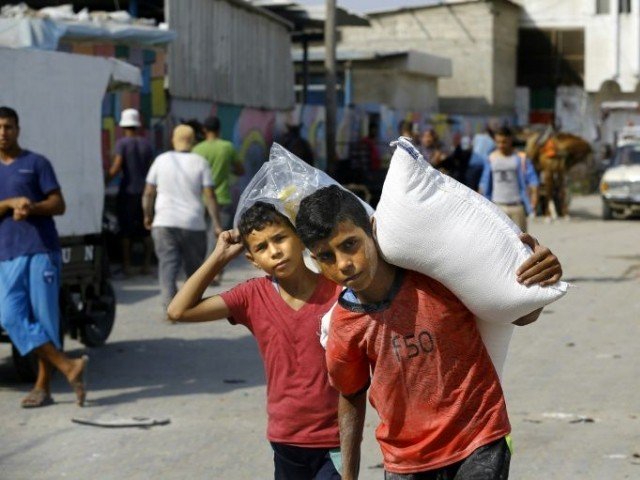
The US State Department this week put on hold two planned payments of more than $100 million to the United Nations Relief and Works Agency (UNRWA).
The State Department denied the freeze was to punish the Palestinian leadership, which has cut ties with President Donald Trump's administration following his recognition of Jerusalem as Israel's capital, with a spokesperson saying it was linked to necessary "reform" of UNRWA.
But Pierre Krahenbuhl, the agency's commissioner general, said they had not been informed by the United States of any new reform demands and were "caught up" in the political dispute.
‘Victory for Palestine’: UN votes 128-9 to reject US decision on Jerusalem
"I have to look at this as not related to our performance but a decision and a debate that was caught up in the aftermath of what of course was the General Assembly resolution on Jerusalem and other matters," Krahenbuhl said.
"My perception is there is a debate in the US administration about funding to the Palestinians and our funding got caught up in that."
The US gave around $700 million in support to the Palestinians last year, of which about half went to UNRWA, which has a non-political mandate to provide schooling, health care and other services to more than three million Palestinians across the Middle East.
Israel and some American politicians accuse the agency of bias, with Israeli leaders saying its existence perpetuates the conflict.
Trump's December 6 recognition of Jerusalem as Israel's capital angered the Palestinians, who see the eastern part of the city as the capital of their future state.
President Mahmud Abbas has said the US under Trump can no longer be mediator in peace talks with Israel.
The United Nations General Assembly voted to condemn the US decision on Jerusalem.
US, Israel slammed over Jerusalem decision
Trump had been pushing to restart peace talks, but on January 2 he tweeted that the US gives the Palestinians "HUNDREDS OF MILLIONS OF DOLLARS" and gets "no appreciation or respect".
"With the Palestinians no longer willing to talk peace, why should we make any of these massive future payments to them?"
On Tuesday, his administration suspended $65 million to UNRWA, followed Thursday by putting on hold another $45 million in food aid destined for the agency.
State Department spokesperson Heather Nauert said the money was being held but could be released "in the future, if reforms are met, if UNRWA agrees to undertake reforms, if other countries agreed to pitch in and provide money".
Krahenbuhl said the agency had received no communication from the United States about further necessary reforms in recent days.
He added that during a recent visit to the US he had been informed the administration was satisfied with UNRWA's performance.
"What is new is a decision by the United States to dramatically reduce its contribution and that was not -- in the communications to me -- associated with reform elements."
"We were simply informed that the contribution to our core budget would be this year $60 million when the United States contributed in total to UNRWA last year $360 million."
"For the moment there has been no further communication."
The Trump administration argues that other global powers are not paying enough for UNRWA, with China contributing only $300,000 last year, while Russia has just agreed to give $2 million a year for the coming years.
Krahenbuhl said they were searching for new sources of support, but that hundreds of thousands of students relied on the agency.
In 2015 UNRWA schools nearly did not open on time because of funding shortages.
"What is at stake is the access of 525,000 boys and girls to their education," Krahenbuhl said.










1732354127-0/Untitled-design-(3)1732354127-0-270x192.webp)






COMMENTS
Comments are moderated and generally will be posted if they are on-topic and not abusive.
For more information, please see our Comments FAQ